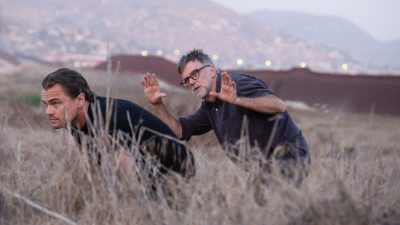“I have never seen such a flawless premiere, I have never been welcomed with such an astonishment”
– wrote Felix Mendelssohn after the premiere of the oratory Elijah which was performed in front of approximately 2000 people at the Birmingham Music Festival. The audience was so excited that the orchestra had to repeat eight parts. We can hear this oratory that depicts the life of the prophet Elijah through passionate and uplifting music, regarded as the best of the 19th century by many, on 13 March as an online broadcast by the Müpa.
Mendelssohn himself considered Elijah as one of his main works, which was one of his many attempts to awaken the ‘early music’. He realised that music literature has a lot of pre-1750 works that have been forgotten but are worth bringing to the spotlight again.
He also knew his audience, so he was aware that the early music still needs to be polished, modified, so that people process it in an easier way. Mendelssohn, whose musical genius was like Mozart’s, took Bach’s St Matthew Passion that has not been played since the composer’s death, and he boldly dared to cut out, rearrange, have a bigger orchestra, a 400-member choir, and he was ready for the premiere in 1829.
We can imagine how the 20-year-old genius might have felt when – according to legend – he realised that someone put the wrong score on the conductor’s podium. But after a second he started to conduct as if nothing had happened; Bach’s music was fully in his head. He even turned pages to make the orchestra feel comfortable and act as if everything was fine.
He was the first conductor to use a stick, and he expected serious commitment from his musicians, wherever they travelled in Europe. He always astonished his audience and his colleagues, too. Schumann called him the best of their age. The reworked St Matthew Passion started the early music movement that is still relevant today – its outstanding Hungarian expert and winner of the Franz Liszt Prize, conductor György Vashegyi, is going to conduct the Elijah in the Müpa this time.
Elijah brings us to the mystic world of the Old Testament. We can see how the 9th century BC story of the prophet Elijah unfolds. He is the absolute protagonist, his remarkable deep voice leads the whole peace, while the choir and the other figures appear as his accompaniment.
Mendelssohn started to work on this topic in the 1840s already, then he put it away for years and only revised and finalised it on request of the Birmingham Music Festival. The flowing music depicts how the prophet Elijah predicts the future, heals, lets the priests of Baal get killed, and then his prayer opens the floods of the sky. In the second act he is framed, he flees, and then he leaves for Heaven. According to his successor Elisha, Elijah left this world on a fiery chariot pulled by horses of fire. That all happened near the Biblical Jericho.
No surprise that Mendelssohn chose such a character from the Bible for this monumental piece: Elijah is considered as someone who prepared the way for the Messiah, an early antecedent of Jesus and John the Baptist. However, Mendelssohn was not happy with the 1846 version. After the Birmingham Music Festival, he reworked his piece once again, to finally consider it ready then.
This time we can watch a concert video that was recorded on 26 October 2018. The Orfeo Orchestra, the Purcell Choir, and great soloists presented it. This piece is a great choice by Müpa for the middle of Lent. Elijah makes us reflect, lift up the sad and tired souls, and brings heavenly music into our days of deprivation during this long-lasting pandemic.
Article: Anna Rácz
Translation: Zsófia Hacsek

























Comments